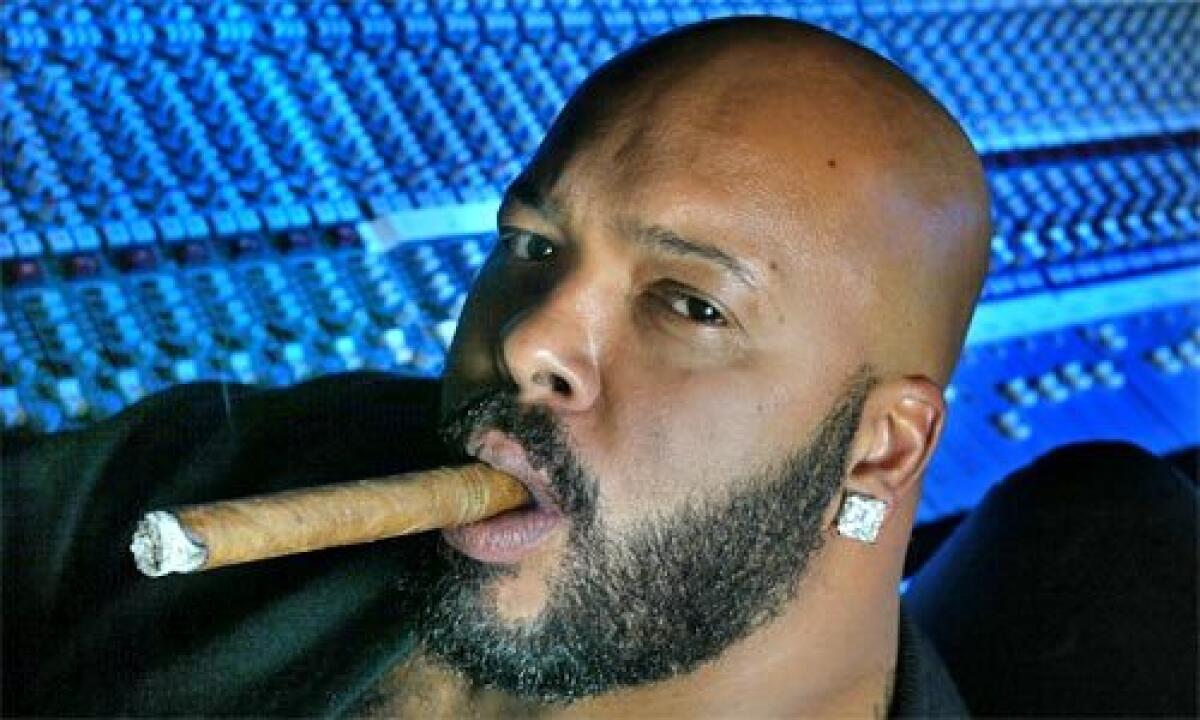Rap mogul alleges fraud

- Share via
A jailed drug dealer and his bankrupt wife allegedly duped a Los Angeles judge to obtain a $130-million default ruling against Death Row Records chief Marion “Suge” Knight, according to a legal motion expected to be the focus of a hearing today in Los Angeles County Superior Court.
Los Angeles attorney Dermot Givens, who previously represented Knight in the case and is separately involved in related litigation, is seeking to have the $130-million judgment set aside because of what he calls new evidence of fraud perpetrated by the plaintiff, singer Lydia Harris, and her imprisoned husband, Michael.
The motion contends that Harris concealed from the court the fact that she had filed for bankruptcy five years before suing Knight -- and that she never claimed an ownership stake in Death Row during that legal proceeding. The motion also alleges that recent sworn testimony by Lydia and Michael Harris shows that her husband, an incarcerated crack kingpin, was the true party of interest in her lawsuit against Knight.
The dispute stems from a 2002 lawsuit filed by Lydia Harris, who claimed she and Knight had started Death Row Records together and that he had cheated her out of millions of dollars of the music label’s profits.
The lawsuit never reached trial. But after years of legal wrangling, Superior Court Judge Ronald M. Sohigian ordered Knight to pay Lydia Harris $130 million because his attorneys had violated court rules requiring them to answer questions and provide information to opposing counsel during the discovery process.
At the time Lydia Harris filed her suit, she was married to Michael “Harrio” Harris, who was in San Quentin State Prison serving a 28-year sentence for selling crack cocaine and attempted murder.
In 1996, Michael Harris notified Death Row Records and its distributor, Interscope Records, that he intended to sue them, contending that he had financed the launch of Knight’s label from behind bars. He subsequently signed a $300,000, out-of-court settlement releasing both companies from any future claims.
Six years later, his wife filed her lawsuit, asserting that she was Knight’s original partner and had claims against Death Row that were separate and distinct from those covered in Michael Harris’ settlement.
Knight’s attorneys recently unearthed a 1998 bankruptcy filing by Lydia Harris in which she did not list Death Row Records as an asset, the motion states. Nor did Harris later notify the trustee of her bankrupt estate that she had filed a lawsuit against Knight asserting an ownership stake in Death Row Records, the motion says.
Soon after the judgment against Knight, the Harrises filed for divorce. Records show that both have testified in the divorce proceedings that Michael was the real party of interest in Lydia’s suit against Knight.
“I was the one making all major client decisions on behalf of the marital estate, even though Lydia was technically named the plaintiff in the matter,” Michael Harris stated in a recent declaration. “Lydia simply accepted whatever decision [her lawyer] and I made jointly.”
The Harrises could not be reached for comment. Their attorneys did not return phone calls Tuesday.
More to Read
Sign up for Essential California
The most important California stories and recommendations in your inbox every morning.
You may occasionally receive promotional content from the Los Angeles Times.













